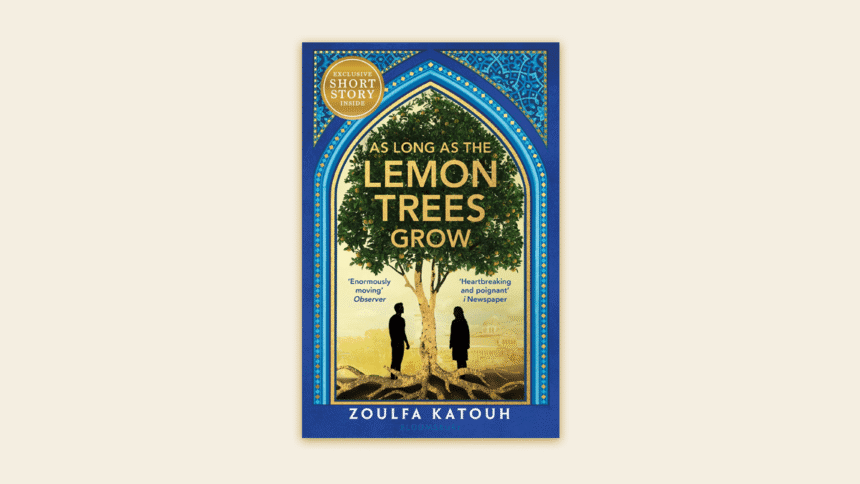In Markus Zusak’s The Book Thief, Death reveals, “I am haunted by humans.” A similar haunting emerges in Zoulfa Katouh’s As Long as the Lemon Trees Grow, where the silence surrounding the Assad regime in Syria resonates deeply. While Zusak personified Death to give voice to mortality, Katouh imparts the burden of remembrance, resistance, and love upon the living amid ongoing violence.
The Assad family’s reign began in 1970 with Hafez al-Assad, ushering Syria into an era of authoritarianism and systematic oppression. His son, Bashar al-Assad, inherited a legacy of brutality upon coming to power in 2000, intensifying atrocities that resulted in the decimation of cities, the displacement of over 16 million people, and the deaths of millions without consequence. Katouh’s novel captures not just the scale of these horrors but conveys the weight of silence they left behind.
Set against the backdrop of the Hama Massacre and its aftermath, Katouh’s young adult novel depicts the Syrian Revolution. Hama, once a stronghold of resistance, experienced brutal repression under Hafez al-Assad. The uprising there faced extraordinary violence, culminating in the government’s historical massacre where it is estimated that over 15,000 lives were erased and more than 40,000 were martyred in a matter of weeks. The regime employed gruesome tactics during this period, solidifying a legacy of terror that still haunts subsequent generations in Katouh’s narrative.
Through the perspective of Salama, an eighteen-year-old pharmacist-turned-doctor, readers witness the chaos and destruction wrought by the Assad regime. Salama’s experiences are interwoven with those of others, including Layla, Kenan, Lama, and Yusuf, illustrating how the violence predated their lives, stripping them of places and loved ones. Katouh humanizes the statistics of war—x number of bombed, y number homeless, z starved—by illustrating the experiences, emotions, and struggles of individuals amid conflict.
Throughout the narrative, Salama’s journey reflects the sacrifices made by both leaders and civilians who refuse to succumb to oppression. The Assad regime’s infrastructure of fear has rendered even innocuous expressions of dissent perilous, with citizens subjected to arrest or violence for mere political thoughts or associations. Katouh contextualizes her characters’ choices within this atmosphere of terror, revealing their desperation and acts of courage as they cling to life.
The relentless threat of death shapes the characters’ realities, with the air thick with the smell of smoke and a perpetual grey cast over their surroundings. For some, finding color becomes a therapeutic endeavor amidst tragedy; for others, the hallucinations of lost loved ones serve as both a coping mechanism and a cruel reminder of their absence.
Rather than reducing her characters to mere representations of trauma, Katouh emphasizes their resilience, allowing glimpses of hope and love to persist against the backdrop of war. Reading As Long as the Lemon Trees Grow post-liberation of Syria elicits mixed emotions; the joy of the regime’s removal is shadowed by the reality of loss and longing, leading readers to question the future of other oppressed peoples in the region.
Aatifa Ikram Khan, an independent researcher based in Madhya Pradesh, holds a Master’s in Language, Literature, Media and Culture from the English and Foreign Languages University, Hyderabad. Her interests include the study of secularism, liberalism, and their implications on diverse modes of existence.
This article originally appeared on Maktoob Media.
Tags: lemon trees, genocide, resilience, survival, memoir
Hashtags: #Book #review #lemon #trees #outlive #genocide










